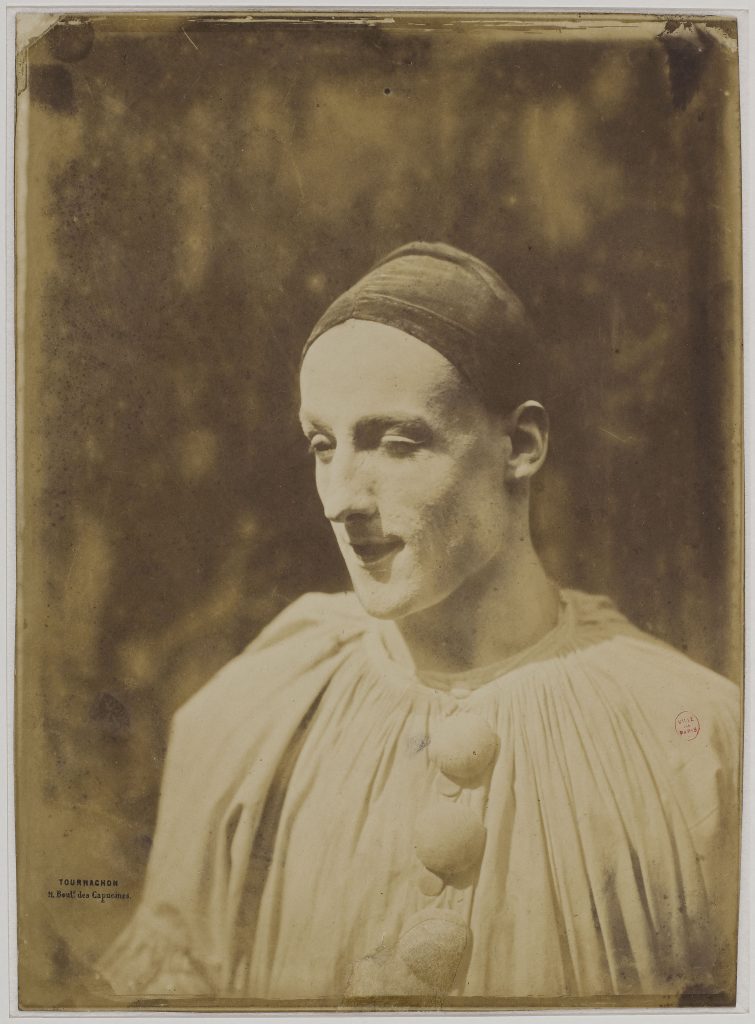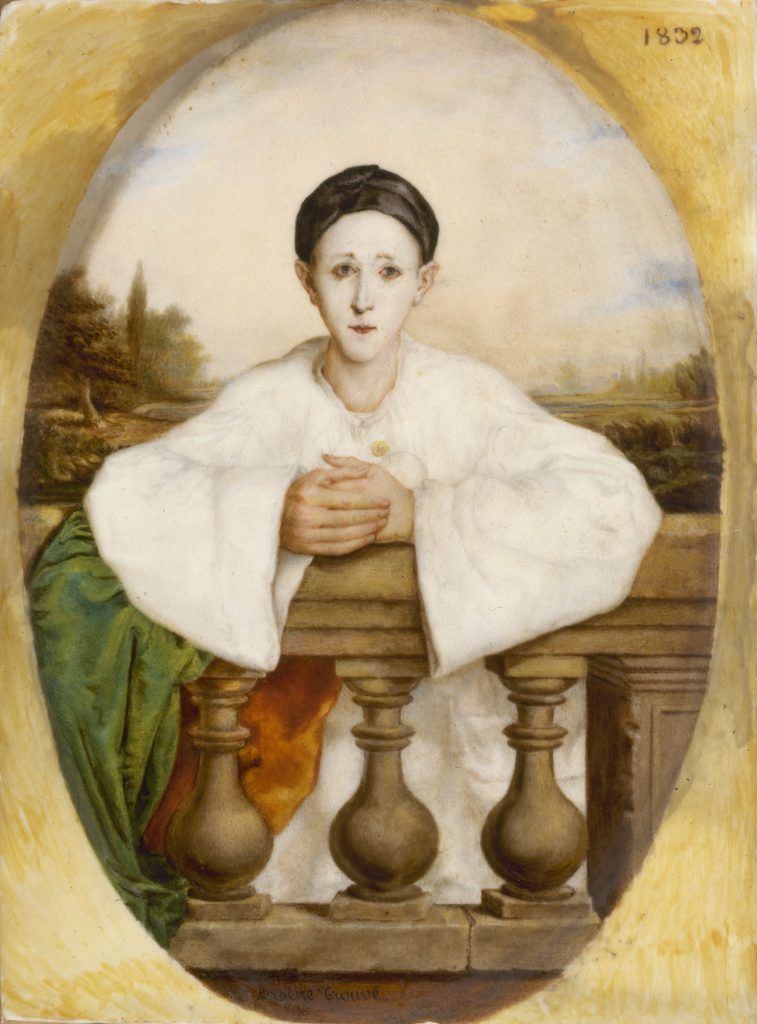
Both a real-life and a fictional figure, the life of Jean-Baptiste Debureau is bound up with the history and the legend of French theatre. He was born in Kolin, in what was Moravian Bohemia, to a Czech mother. His father was French. For twenty years after he was first revealed on stage one evening in 1826, he will be the mythical mime of the boulevard du Temple, official Pierrot of the Théâtre des Funambules. He revived this character stepping away from the cynicism of its model, the Pierrot of the Comedia dell’Arte. Adored by all audience, popular or literate, he also owes his reputation to Jules Janin. This author dedicates a book to him in 1833, comparing him to another myth, Talma. He gets texts written giving roles of baker, pastry cook, mason, which he parodies freely. However he also writes his own scenarios. In his pantomimes, he wears a black cap, his white blouse is decorated with large black buttons or pompons. His face is paintd white, adding a poetic touch to the diverse character. He is the sad Pierrot, the dreaming Pierrot, the Pierrot cheated on and scorned.
A century after his death, he was gracefully brought to life by Jean-Louis Barrault in the film by Marcel Carné, Les Enfants du paradis.
« In Paris, Finot fired at Macassar Oil that delightful joke which made people so merry at the Funambules, when Pierrot, taking an old hair-broom, anointed it with Macassar Oil, and the broom incontinently became a mop. This ironical scene excited universal laughter. »
Honoré de Balzac, Rise and Fall of César Birotteau, 1837

